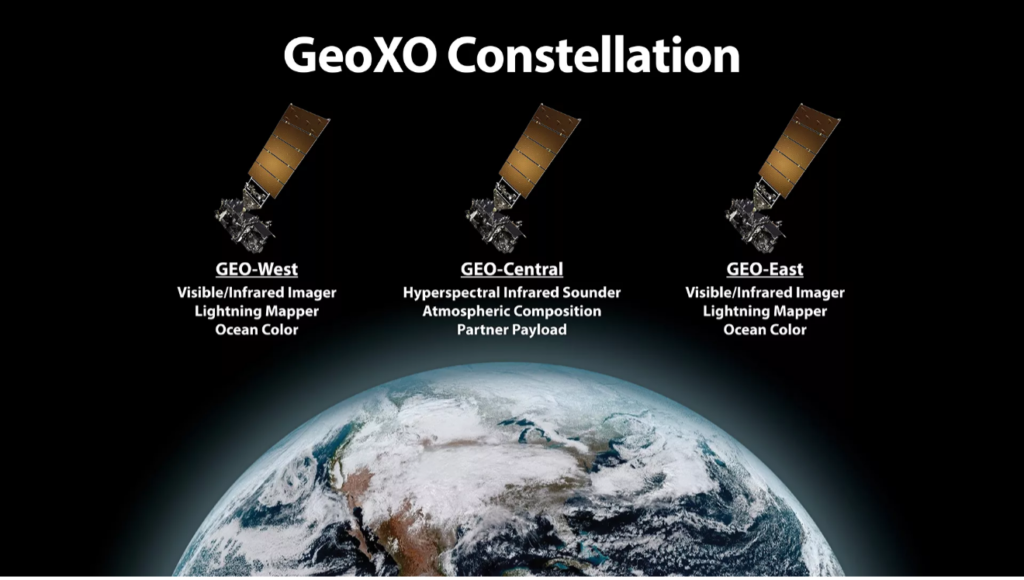US space agency NASA has selected two firms to carry out the Geostationary Extended Observations (GeoXO) Atmospheric Composition (ACX) instrument Phase A Study, as part of NOAA’s GeoXO meteorological satellite program.
Ball Aerospace & Technologies in Colorado and Raytheon Intelligence & Space in California will both receive 20-month firm-fixed-price contracts for approximately US$5m. The work will be performed at the contractors’ facilities.
The principal purpose of this effort is to provide a definition-phase study of a GeoXO ACX instrument. The ACX instrument will be a hyperspectral, ultraviolet through visible imaging spectrometer that is planned to fly on the NOAA GeoXO series of geostationary satellites. The selected firms will develop the instrument concept and mature necessary technologies. The study will help define the instrument’s potential performance, risks, costs, and development schedule. The results of the study will be used to set performance requirements for the ACX instrument implementation contract, which is planned for award in 2024.
Atmospheric composition measurements from geostationary orbit will provide critical data for the air quality forecasting and public health communities. The instrument will monitor air pollutants emitted by transportation, power generation, volcanoes and wildfires on an hourly basis, as well as pollutants generated from these emissions once they are in the atmosphere. This operational geostationary instrument will represent an important advancement over the once-per-day observations provided by current polar-orbiting instruments.
NOAA’s GeoXO mission will continue and expand observations provided by the GOES-R series of satellites. NOAA is working to ensure these critical observations are in place by the early 2030s, when the GOES-R series nears the end of its operational lifetime.
The GeoXO mission is a collaborative partnership between NOAA and NASA. NOAA funds, operates and manages the mission and NASA’s Goddard Space Flight Center in Greenbelt, Maryland, manages the acquisition of the Phase A formulation contracts.



